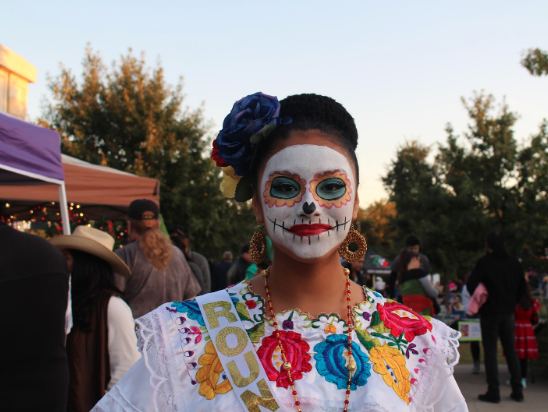ORANGE style editors give us the scoop on what is on their radar this season.
1. What’s your go-to pair of shoes for the fall?
Dahlia Dandashi – Assistant Style Editor: My go-to pair of shoes this fall have to be these brown ankle-high boots. The fact that they’re brown, leather boots makes them appropriate for any event or outing. They go with absolutely everything — whether it’s leggings, high-waisted jeans or a skirt with tights. They’re comfortable, they keep me warm and are super versatile.
Helen Fernandez – Style Editor: My go-to pair of shoes in the fall are my Steve Madden ankle booties. They’re extremely comfortable and in my favorite color, black.
Kristen Hubby- Assistant Style Editor: My go-to pair of shoes for the fall are my favorite pair in my closet — Jeffrey Campbell Oriley boots. I have an obsession with Jeffrey Campbell and booties, so these are the perfect shoe. They are easy to walk in, have unique cut-outs on the sides and, of course, are black!
2. What new skincare product are you using this month/week?
Dahlia: I love foundation, but about a year ago I stopped wearing it. Though I think foundation makes my skin look flawless, it also makes me break out. Now when I do wear foundation, I like it to be either tinted moisturizer or BB cream. I have oily-prone skin, so I’ve tried the new 2% salicylic BB cream. Though it isn’t my No. 1 choice of BB cream, I do love it! It gives me coverage, and it’s super light. I recommend it for anyone looking for a flawless but weightless foundation finish.
Helen: I’ve experimented with facial scrubs before, but gave up searching after all of the ones I tried were too harsh on my skin. Two weeks ago, I bought the Aveeno Skin Brightening Daily Scrub. I use it once a week when I feel my skin needs a pick-me-up. And, so far, it hasn’t caused any breakouts.
Kristen: The new skincare product I am using this month is Enchanted Eye Cream from Lush — its lavender honey water reducese swelling and the almond and jojoba oils moisturize. I put a small amount under and around my eyes every morning to give me that “just woke up from a full night’s rest” kind of look.
3. If you could be anything for Halloween, what would you be?
Dahlia: Khaleesi from Game of Thrones. Always and forever. I want her white, braided hair and her I-just-fought-an-army outfits. I would love to see if I could pull off her look with a wig and some torn-up clothes! Mother of Dragons? More like mother of babes.
Helen: If I could be anyone for Halloween I would be Wonder Woman. I love the red, white and blue outfit. And she has a cape!
Kristen: If I could be anything for Halloween I would either be a hot dog or a hamburger. I have always been extremely jealous of the people who own these costumes — especially the ketchup and mustard bottles.
















































